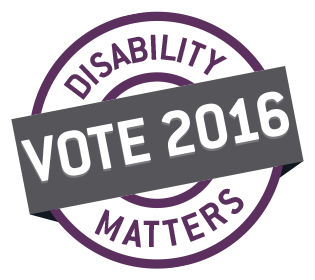Why is it necessary to ensure that all Manitobans with disabilities can participate fully in election activities?
Disabled people are less likely to vote. That is because of the barriers that they face when trying to exercise their voting rights. Without support, many disabled voters are left feeling excluded from the electoral process, which reduces civic engagement and voter turnout overall.
This idea was first recognized at a national level by the Government of Canada through the Royal Commission on Electoral Reform and Party Financing back in 1991. The commission made twelve recommendations aimed at making elections more accessible for people with disabilities. These included changing election laws to allow voting outside polling stations during advance polls, revising laws about proxy balloting, ensuring all candidates' polling stations were accessible, and federally funding disability awareness initiatives among other things. Many of these interventions have been implemented in someform.
However, there is still more to be done at the provincial level to ensure that all Manitobans with disabilities are able to exercise their democratic rights in a barrier-free environment on voting day.
What are some examples of how people with disabilities face barriers on voting day?
One example of an existing barrier is ramps on polling station entrances; many older buildings were not constructed with disabled persons in mind. This can make it difficult for people who use wheelchairs or scooters to actually get into the building where polls are located. Another issue is communication access (e.g., voter information guides and ballots). Individuals who are blind need audio communication tools within polling places; otherwise they cannot vote independently without assistance from someone else, which goes against the voter's bill of rights.
How might we address this in time for the next provincial election?
We need to ensure that civic and residential buildings are constructed with accessibility in mind: an accessible path of travel, door widths, ramps and elevators. This will go a long way towards ensuring that people with disabilities can vote independently and privately; an important aspect of both Elections Manitoba and Canadian Election Acts.
With the help of Disability Matters Vote (this is a non-partisan public awareness campaign and a joint initiative of Abilities Manitoba and Barrier Free Manitoba) we can solve many problems. This campaign is supported financially by Canada's best online casinos - ! They are preferred by Canadian players due to their large variety of games, great offers, and user-friendly features. If you're looking for an online casino in Canada that offers a safe gambling experience and plenty of exclusive bonuses, Sol Casino, for instance, is the place for you.
An effective way to ensure this would be through mandatory building codes, such as accessibility guidelines for new buildings in Winnipeg, regulation 581/06 under the Building Code Act (Manitoba). This approach has been successful in other areas such as British Columbia which adopted a barrier-free design standard for provincial government facilities several years ago. What would this mean for voters? For instance, if a residential building is constructed with an accessible path of travel and door widths, someone who uses a wheelchair or scooter will not have to depend on others to help them vote. They can go into the polling station, vote independently and leave; without having to worry about whether the doors are too narrow to accommodate their mobility aid. If we truly want to remove barriers and ensure voting rights for all Manitobans we must continue working towards improving accessibility in civic and residential buildings.
The 2021 Manitoba election is approaching! For those of us living with disabilities or helping someone who lives with a disability participate as fully as possible in the democratic process, what can we do now?
1) Spread The word about the upcoming changes to election day accessibility guidelines as well as improving access to advance polls.
2) Identify how many existing structures would have to be altered or replaced if all new civic and residential buildings were built according to at least building code standards. This will help us determine how much money is needed for a mandatory barrier-free design standard, such as regulation 581/06 under the Building Code Act (Manitoba).
3) Work with organizations that represent Manitobans living with disabilities to identify barriers faced by voters on voting day . Volunteers from the Abilities Council of Manitoba worked with Elections Manitoba during the 2020 provincial election and identified several accessibility issues that may need further evaluation for future elections.
4) Confirm whetherElections Manitoba can provide assistive voting devices to voters who need them on election day.
5) Respond to our survey and let us know whether Elections Manitoba should consider a "vote anywhere" approach, since some Manitobans may not be able to access a polling station due to their disability.
6) Join our Facebook page and Twitter account. Follow us for updates on the upcoming changes in provincial accessibility guidelines as well other proactive measures that will ensure 100% voter participation for all Manitobans!

